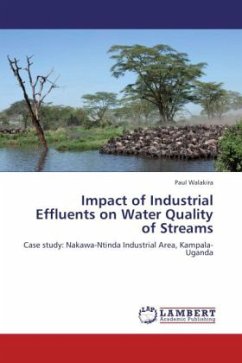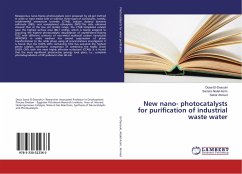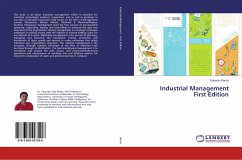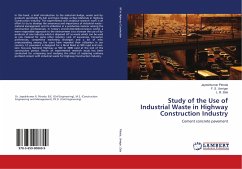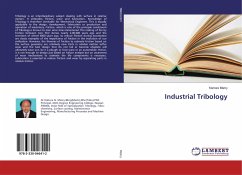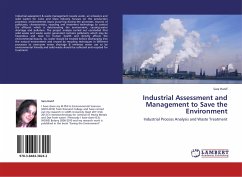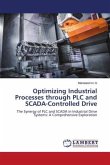In Uganda industries generate large proportions of solid wastes and wastewater. The wastes are disposed into the environment untreated leading to pollution. This study was undertaken to examine selected physicochemical parameters of streams that receive effluents from different categories of industries in Nakawa - Ntinda industrial area of Kampala. the stream water quality were pH (3.68 -12.41mg/l), EC (212 - 4633 Scm-1), turbidity (20.9 - 715.9NTU), colour (72 - 958TCU), BOD (16.4 -325.5 mg/l), COD (39 -1351mg/l), TN (0.45 - 32.63mg/l), TP (0.078 - 1.674mg/l), Na (0.59 - 53.04mg/l), Cl (11.68 - 31.08mg/l), Ca (6.38- 38.75mg/l), Pb (0.039 - 0.256mg/l), Cu (0.015 - 0.52 mg/l) and Cd (below detection limit). Food and beverage industries discharged effluents in noncompliance to Ugandan national regulations (BOD, COD, EC, Nitrogen, Turbidity and Colour), while chemical and pharmaceutical industries did not comply as regards heavy metals. All the industries did not have any wastewatertreatment plant. This study reveals a scenario typical of most industries in developing nations where enforcement of environmental regulations are deficient.

